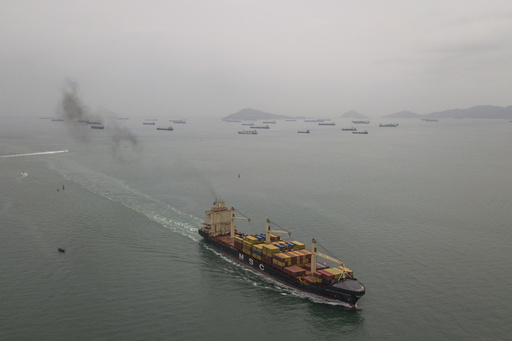
PANAMA CITY — Secretary of State Marco Rubio embarked on his inaugural diplomatic mission on Saturday, arriving in Central America to address President Trump’s key focus: curtailing illegal immigration. He also intends to convey the U.S. desire to regain control over the Panama Canal, a message that will likely meet significant resistance from leaders in the region.
This initial trip to Central America marks a departure from the typical preference of previous secretaries of state, who often start their tenures in Europe or Asia. Rubio, the first Hispanic to hold the country’s top diplomatic position, has a personal connection to the area, demonstrating the Trump administration’s commitment to focusing its foreign policy efforts closer to home.
In a recent op-ed for a notable publication, Rubio noted that his choice to remain in the hemisphere for his first overseas engagement was intentional. The administration’s strategy includes not only limiting immigration and combating drug trafficking but also addressing the rising influence of China in the Western Hemisphere. A significant aspect of this plan involves reestablishing American oversight of the Panama Canal, which was handed over to Panama in 1999 amidst objections to Trump’s acknowledgment of U.S. control over it.
Rubio highlighted in his article the detrimental impacts of mass migration, drug trafficking, and the aggressive foreign policies of nations such as Cuba, Nicaragua, and Venezuela. He expressed concern that the Chinese Communist Party is utilizing its economic and diplomatic power to undermine U.S. interests and to turn independent nations into affiliates of China.
His first destination during the five-nation tour was Panama, where President José Raúl Mulino asserted that there would be no discussions about the canal’s ownership. Instead, Mulino expressed hope that Rubio would prioritize issues like migration and drug enforcement during his visit. “It’s impossible, I can’t negotiate,” he declared, emphasizing, “The canal belongs to Panama.”
Despite Mulino’s firm stance, Rubio plans to clearly communicate Trump’s intentions. During a conversation with a media host, he stated that the call to reclaim control of the Panama Canal stems from genuine national security interests, especially given the increasing influence of China in Latin America. “We’re going to address that topic,” he confirmed, reiterating the President’s clear desires regarding the canal.
Concerns about Chinese investments in ports and infrastructure surrounding the canal are central to Rubio’s message, as he warned that if China decided to obstruct traffic in the canal, they could indeed do so. This situation raises issues related to a treaty signed in 1977, which led to the U.S. relinquishing control of the canal.
While Mulino’s rejection of any ownership negotiations appears definitive, some observers believe that Panama could be amenable to a middle ground, perhaps involving the removal of the Hong Kong-based Hutchison Ports company, which has been managing the canal under a lengthy no-bid extension. An ongoing audit might lead to a new bidding process on canal operations.
However, it remains uncertain whether Trump would consider conceding the canal’s concession to an American or European firm as sufficient to satisfy his demands, which seem to exceed mere operations.
Experts suggest that Trump’s push for greater control aligns with existing opportunities; yet the outcome relies heavily on how the administration defines its boundaries. There is potential for compromise, but it’s essential to determine if the administration is genuinely intent on regaining control over the canal, as nothing less would meet Trump’s conditions.
Rubio’s schedule includes meetings with President Mulino and the canal administrator, followed by visits to El Salvador, Costa Rica, Guatemala, and the Dominican Republic. Notably, he arrived shortly after visa processing resumed at the U.S. Embassy in Bogota, Colombia, which had recently suspended operations in response to a refusal from the Colombian government to accept deportees from the United States.
Typically, newly appointed secretaries of state accompany their travels with tangible “deliverables,” such as assistance packages or cooperation initiatives. However, due to ongoing reviews of foreign assistance programs mandated by Trump, Rubio may find limited options to offer during this trip. Although programs targeting policing, counternarcotics, and migration support have generally been the focus, specific life-saving measures might be exempt from the funding freeze, with waiver applications already submitted for various nations he will visit, including Panama and Costa Rica.
While Rubio will not head to Haiti, it is worth noting that the State Department has already facilitated roughly $41 million in support for an international peacekeeping effort there.

